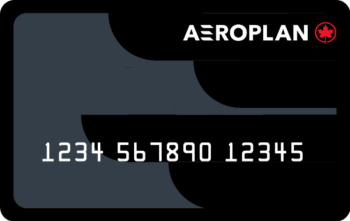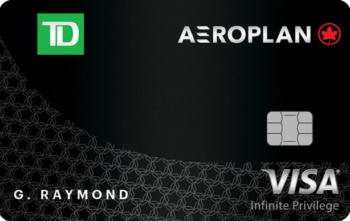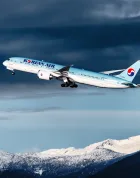On January 29, 2021, Prime Minister Justin Trudeau announced a series of new federal measures relating to international travel.
These measures were then further detailed by Trudeau and federal ministers as of today, February 12, 2021.
COVID-19 PCR Tests + Hotel Quarantine for International Arrivals
All international passenger flights arriving in Canada (including from the US) must land only at one of four airports:
- Vancouver International Airport (YVR)
- Calgary International Airport (YYC)
- Toronto Pearson International Airport (YYZ)
- Montreal Trudeau International Airport (YUL)
Starting February 22, 2021, all international travellers will then be subjected to testing upon arrival, and will need to quarantine at a designated hotel at their own expense for up to three days while waiting for test results.
Prior to their arrival into Canada, travellers will need to reserve a three-night stay at a designated quarantine hotel at their own expense. According to Prime Minister Trudeau, this hotel quarantine is “expected to cost more than $2,000 (CAD)”.
The full list of quarantine hotels will be available on the Government of Canada website as of February 18, 2021. The cost of the hotel will cover the room, food, cleaning, infection prevention and control measures, security, and transportation.
If the traveller’s initial test results are negative, travellers may return to their homes to complete the remainder of their 14-day quarantine, which will be subject to increased supervision and enforcement compared to before.
(Therefore, if a traveller is connecting elsewhere in Canada other than the four designated international airports, they will need to complete their three-day quarantine at the hotel before taking their connecting interior flight.)
If test results are positive, travellers must continue to quarantine at a government-designated facility for the remainder of their 14-day quarantine, to ensure that they do not contribute to further spread of the virus in the community.
Finally, on the 10th day of the 14-day quarantine period, travellers must take another COVID-19 PCR test in order to complete the overall quarantine process. Travellers must contact their local public health authority to arrange this second test.
These measures are in addition to existing requirements for Canada-bound travellers to obtain negative COVID-19 tests within 72 hours prior to boarding their flights.
Note that the new federal measures supersede Alberta’s rapid testing pilot project, which has been suspended as of mid-February. Air travellers entering Canada via Calgary International Airport will no longer be able to bypass the 14-day mandatory quarantine, and must follow the same testing and hotel quarantine requirements as everyone else.
Negative Test Required at the Land Border
As of February 15, 2021, Canada will also be implementing the requirement for non-essential travellers entering Canada from the US land border to present a negative COVID-19 PCR test taken within 72 hours of their entry.
Travellers with the right of entry into Canada cannot be turned away at the border, but they will face significant fines if they fail to present a negative COVID-19 test.
Furthermore, as of February 22, 2021, land travellers will also need to take two additional COVID-19 tests: one upon entry, and one on the 10th day of the 14-day quarantine period. There is no hotel quarantine requirement for land travellers.
This builds upon the existing requirement for air travellers to present negative tests. Essential workers crossing the land border will remain exempt from the testing or quarantine requirements, as has been the case since the start of the pandemic.
Canada’s Airlines Suspend Service to Sun Destinations
As of Sunday, January 31, Canada’s major airlines – Air Canada, WestJet, Sunwing Airlines, and Air Transat – will suspend service to Sun destinations through April 30. This includes flights to Mexico and all Caribbean destinations.
Canada’s airlines have agreed to work together with the federal government in this move, which will serve to dissuade Canadian travellers from planning non-essential leisure trips during the winter months.
The airlines will be making arrangements with their customers who are currently in these regions to organize return flights home.
International Travel Will Be Exceedingly Difficult in the Short Term
In the midst of an ongoing pandemic and novel strains of coronavirus showing up around the world, Canada’s new travel restrictions are clearly designed to do everything in the government’s power to dissuade Canadians from travelling internationally.
A mandatory hotel quarantine at the traveller’s own expense reflects similar measures implemented by Australia and New Zealand since the very beginning of the pandemic. Some have criticized these measures as being overly draconian, while others have praised them for their effectiveness in mitigating virus transmission from abroad.
Overall, I view these new travel restrictions as largely quite reasonable in the current context.
As I mentioned the last time we discussed travel restrictions, I think that no matter whether we move in the direction of relaxing or tightening travel restrictions, we should be implementing more decisive measures than a poorly-enforced blanket 14-day quarantine. That’s what we’re seeing with today’s announcements, in the direction of tighter restrictions for the short term.
Testing at our major airports is something that Canada should’ve implemented from the very beginning. The same is true for working in tandem with our major airlines on new travel restrictions, rather than blindsiding the airlines with announcements out of the blue.
Some may say it’s “too little too late”, but I’m pleased that we’re at least moving in the right direction – especially now that there is an emphasis on keeping out novel strains of the virus, which can further complicate vaccination efforts that are already lagging behind.
I continue to harbour doubts about the enforcement of the remainder of the 14-day quarantine at home, but with a $2,000+ upfront expense beforehand and popular routes to Sun destinations cancelled through the spring, I can’t imagine there will be too many travellers to supervise in the first place. The new restrictions should indeed fulfill their objective of dissuading the majority of Canadians from travelling internationally over the next little while.
Now, at first glance, the price point quoted by Trudeau of “more than $2,000” for a three-day mandatory hotel quarantine appears ridiculous on the surface.
My reading of this situation is that the $2,000+ expense is very much a measure of deterrence: Canada can’t stop its citizens from travelling, but it can impose a brazenly and disproportionately expensive quarantine upon their return.
I’d love to be proven wrong, and for the $2,000+ quarantine to take the form of a luxurious three-night stay at the St. Regis Toronto, but I get the sense that the price point is being set ridiculously high purely as a way to discourage travel.
For travellers who are outside of Canada at the moment: unless you make arrangements to return in the immediate future, you should be prepared to face a $2,000+ hotel quarantine upon your return.
This might come as a surprise, but it really shouldn’t, because anyone travelling internationally at the moment must be comfortable with the reality that circumstances may change at a moment’s notice – a reality that will hold true to an even greater effect over the next few months while these restrictions are in place.
Conclusion
Canada has announced a series of new travel restrictions today, including mandatory COVID-19 PCR testing at its four major ports of entry, a mandatory three-day hotel quarantine for international travellers while waiting for tests results to arrive, and the cancellation of all flights to Mexico and the Caribbean through April 2021.
International travel will be exceedingly difficult over the next few months as we wait for vaccines to solve the problem in the long run. Most Canadians will opt to skip any Spring Break trips they might’ve planned and stay home, and those who do choose to travel internationally now face even more financial and logistical obstacles than before.
We’ll find out on February 18 the full list of designated hotels for the three-day quarantine (and whether travellers be able to earn points and elite nights on their $2,000+ stays).
I’ll be sure to update this article with more information when it’s available. In the meantime, we’ve updated our Travel During COVID-19 resource with the latest information from today.




















